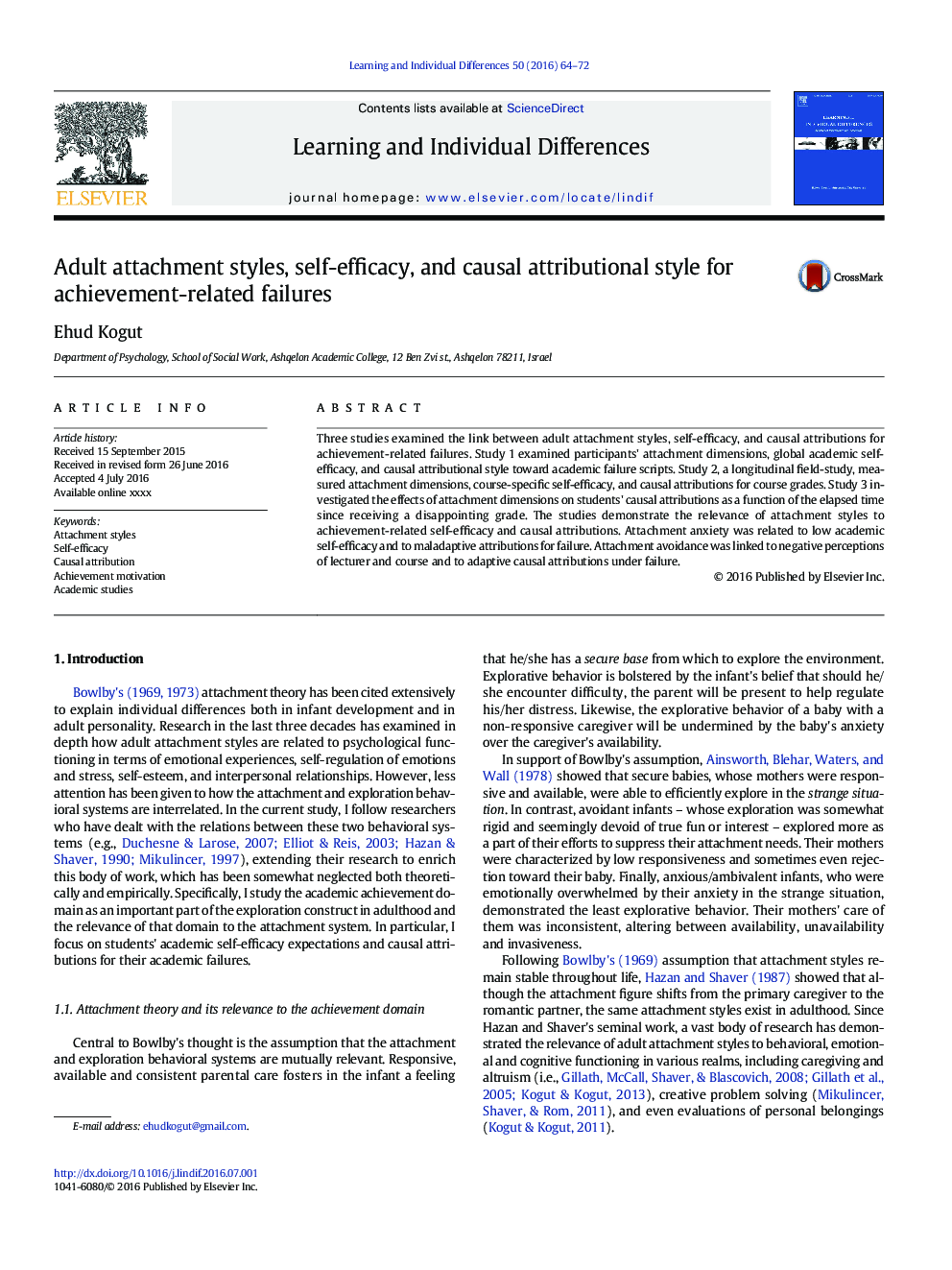| کد مقاله | کد نشریه | سال انتشار | مقاله انگلیسی | نسخه تمام متن |
|---|---|---|---|---|
| 364478 | 621069 | 2016 | 9 صفحه PDF | دانلود رایگان |
• Attachment anxiety is inversely related to academic self-efficacy.
• Attachment avoidance is not related to academic self-efficacy.
• Attachment anxiety is related to maladaptive attributions for academic failures.
• Attachment avoidance is related to adaptive attributions for academic failures.
Three studies examined the link between adult attachment styles, self-efficacy, and causal attributions for achievement-related failures. Study 1 examined participants' attachment dimensions, global academic self-efficacy, and causal attributional style toward academic failure scripts. Study 2, a longitudinal field-study, measured attachment dimensions, course-specific self-efficacy, and causal attributions for course grades. Study 3 investigated the effects of attachment dimensions on students' causal attributions as a function of the elapsed time since receiving a disappointing grade. The studies demonstrate the relevance of attachment styles to achievement-related self-efficacy and causal attributions. Attachment anxiety was related to low academic self-efficacy and to maladaptive attributions for failure. Attachment avoidance was linked to negative perceptions of lecturer and course and to adaptive causal attributions under failure.
Journal: Learning and Individual Differences - Volume 50, August 2016, Pages 64–72
